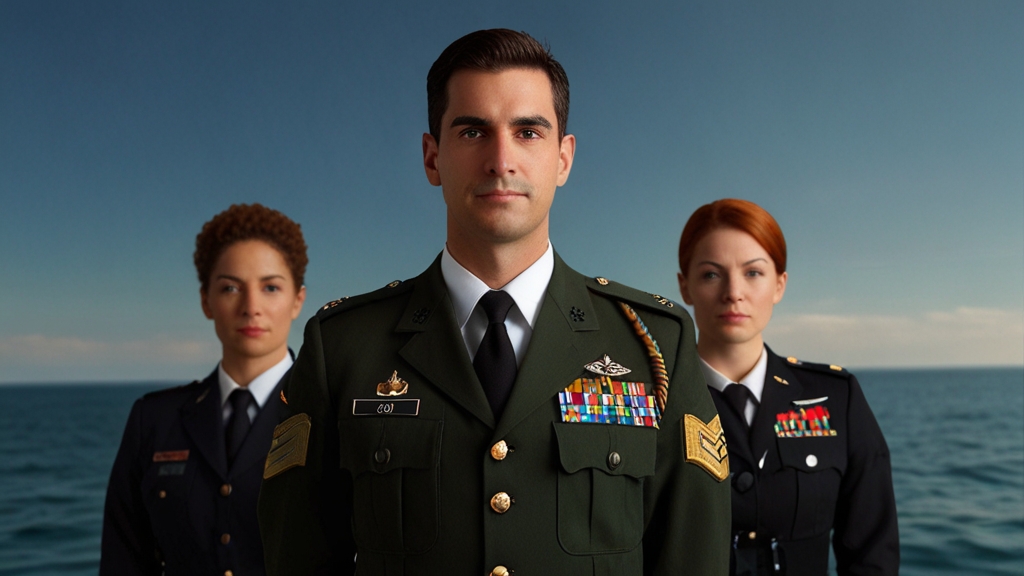Military lawyers play a vital role in ensuring justice within the armed forces. They provide legal assistance to service members and handle various cases, ranging from court-martials to administrative hearings. Understanding the role and responsibilities of a military lawyer can help service members navigate their legal challenges more effectively.
What is a Military Lawyer?
A military lawyer, also known as a Judge Advocate General (JAG), is a legal professional who serves in the armed forces. They provide legal counsel to service members and represent them in military courts.
The Role of a Military Lawyer
Military lawyers handle a wide range of legal issues. They offer advice on military law, assist with criminal defense, and help with administrative matters.
Qualifications and Training
Becoming a military lawyer requires a law degree and passing the bar exam. Additionally, they undergo specialized training in military law and procedures.
Types of Cases Handled by Military Lawyers
Military lawyers deal with various cases that affect service members. These cases can have significant impacts on their careers and personal lives.
Court-Martials
Court-martials are military trials for serious offenses. Military lawyers represent the accused, ensuring their rights are protected throughout the process.
Administrative Hearings
Administrative hearings address issues like non-judicial punishments and discharge proceedings. Military lawyers advocate for service members during these hearings.
Legal Assistance
Military lawyers provide legal assistance on personal matters, such as family law, estate planning, and consumer protection.
The Importance of a Military Lawyer
Military lawyers play an essential role in maintaining justice within the armed forces. They ensure that service members receive fair treatment under military law.
Protecting Service Members’ Rights
Military lawyers safeguard the rights of service members. They ensure that the legal processes are fair and just, protecting individuals from unjust actions.
Upholding Military Discipline
By enforcing military law, military lawyers help maintain discipline and order within the armed forces.
Providing Legal Guidance
Military lawyers offer crucial legal guidance to commanders and service members. This advice helps in making informed decisions and avoiding legal pitfalls.
Challenges Faced by Military Lawyers
Military lawyers encounter unique challenges in their roles. Understanding these challenges can provide insight into their critical work.
High-Stakes Cases
Military cases often involve high stakes, affecting careers and lives. Military lawyers must navigate these pressures while providing effective representation.
Complex Legal Environment
Military law is complex and differs from civilian law. Military lawyers must be well-versed in these nuances to effectively represent their clients.
Emotional Toll
Dealing with sensitive and high-stress cases can take an emotional toll on military lawyers. They must balance their professional responsibilities with their well-being.
How to Become a Military Lawyer
Becoming a military lawyer involves specific steps and qualifications. Here’s an overview of the process.
Educational Requirements
Aspiring military lawyers must first obtain a law degree from an accredited law school. They must also pass the bar exam in their respective states.
Joining the Military
After completing their legal education, candidates must join the military. Each branch has its own requirements and procedures for accepting lawyers.
Specialized Training
Once accepted, military lawyers undergo specialized training. This training covers military law, court-martial procedures, and other relevant topics.
The Benefits of Being a Military Lawyer
Serving as a military lawyer offers unique benefits and opportunities. These advantages can make the career path appealing to many legal professionals.
Professional Growth
Military lawyers gain valuable experience handling diverse and challenging cases. This experience can enhance their legal skills and career prospects.
Job Security
Military lawyers enjoy job security and steady employment. The armed forces require legal professionals to handle ongoing legal matters.
Serving the Nation
Serving as a military lawyer provides a sense of fulfillment. It offers the opportunity to contribute to national defense and support service members.

Differences Between Military and Civilian Lawyers
Military lawyers and civilian lawyers operate in different legal environments. Understanding these differences highlights the unique aspects of military law practice.
Legal Jurisdiction
Military lawyers operate under the Uniform Code of Military Justice (UCMJ). Civilian lawyers practice under state and federal laws.
Clientele
Military lawyers exclusively serve service members and military personnel. Civilian lawyers represent clients from the general public.
Court Systems
Military lawyers practice in military courts and administrative hearings. Civilian lawyers operate in state, federal, and local courts.
The Impact of Military Lawyers on the Armed Forces
Military lawyers have a significant impact on the armed forces. Their work ensures justice and fairness within the military community.
Ensuring Fair Trials
Military lawyers ensure that service members receive fair trials. They protect the rights of the accused and ensure due process is followed.
Advising Commanders
Military lawyers provide legal advice to commanders. This guidance helps in making decisions that comply with military law and regulations.

Supporting Military Families
Military lawyers offer legal assistance to military families. This support helps families navigate legal issues, providing peace of mind.
Ethical Considerations for Military Lawyers
Military lawyers must adhere to high ethical standards. These considerations are crucial for maintaining integrity and trust within the military justice system.
Confidentiality
Military lawyers must maintain client confidentiality. This principle is essential for building trust and providing effective legal representation.
Conflict of Interest
Avoiding conflicts of interest is critical for military lawyers. They must ensure that their actions do not compromise their professional responsibilities.
Professional Conduct
Military lawyers must adhere to professional conduct standards. This behavior upholds the dignity and integrity of the legal profession.
The Future of Military Law
Military law continues to evolve. Staying informed about changes and trends is essential for military lawyers.
Technological Advancements
Technological advancements impact military law practice. Military lawyers must adapt to new technologies and their implications for legal proceedings.
Legal Reforms
Ongoing legal reforms can affect military law. Military lawyers must stay updated on changes to effectively represent their clients.
International Law
This aspect is crucial for cases involving international military operations and treaties.

Case Studies: Military Lawyers in Action
Case studies provide insight into the real-world impact of military lawyers. These examples highlight their critical role in the military justice system.
High-Profile Court-Martials
High-profile court-martials demonstrate the importance of military lawyers. They showcase how legal expertise ensures fair trials and justice.
Administrative Hearings
Administrative hearings highlight the advocacy role of military lawyers. They show how legal representation can affect service members’ careers and lives.
Legal Assistance Cases
Legal assistance cases illustrate the supportive role of military lawyers. They emphasize the importance of legal aid for military families.
FAQs about Military Lawyers
What is the primary role of a military lawyer?
A military lawyer provides legal counsel to service members, represents them in military courts, and handles various legal issues, including criminal defense, administrative hearings, and personal legal matters.
How does one become a military lawyer?
To become a military lawyer, one must obtain a law degree from an accredited law school, pass the bar exam, and then join the military. After joining, they undergo specialized training in military law and procedures.
What types of cases do military lawyers handle?
Military lawyers handle a wide range of cases, including court-martials, administrative hearings, and providing legal assistance on personal matters such as family law, estate planning, and consumer protection.
How do military lawyers differ from civilian lawyers?
Military lawyers operate under the Uniform Code of Military Justice (UCMJ) and serve service members exclusively. In contrast, civilian lawyers practice under state and federal laws and represent clients from the general public.
What challenges do military lawyers face?
Military lawyers face challenges such as handling high-stakes cases, navigating a complex legal environment, and dealing with the emotional toll of sensitive and high-stress cases.
What ethical considerations must military lawyers adhere to?
Military lawyers must maintain client confidentiality, avoid conflicts of interest, and adhere to professional conduct standards to uphold the integrity and trust within the military justice system.
How is the future of military law evolving?
The future of military law is influenced by technological advancements, legal reforms, and international law. Military lawyers must stay informed and adapt to these changes to effectively represent their clients.
Why are military lawyers essential?
Military lawyers are essential for protecting service members’ rights, maintaining military discipline, and providing crucial legal guidance. Their role ensures justice and fairness within the armed forces.
Conclusion
Military lawyers are indispensable to the armed forces. They provide essential legal services, ensuring justice and fairness for service members. Understanding the role and impact of military lawyers helps appreciate their contributions to the military community. By upholding high ethical standards and adapting to changes, military lawyers continue to support the armed forces effectively.